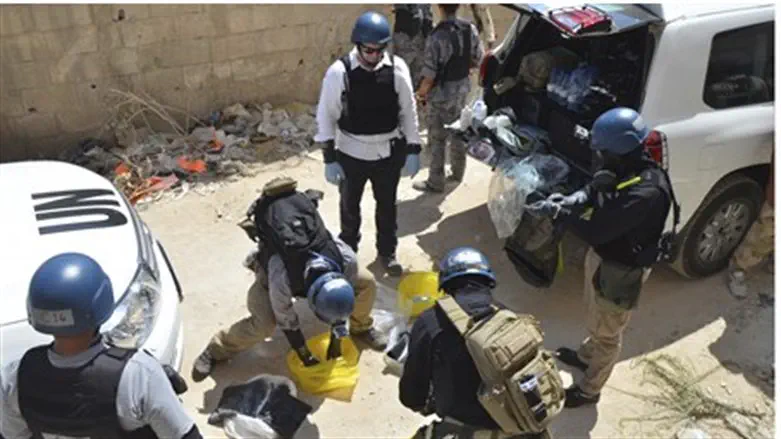
Syria’s Foreign Minister Asaad Hassan al-Shibani declared on Wednesday that the country is committed to eliminating any remaining chemical weapons following the fall of Bashar Al-Assad's government, Reuters reported.
Speaking at the Organization for the Prohibition of Chemical Weapons (OPCW) in The Hague, Shibani appealed to the international community for assistance in this effort.
Shibani became the first Syrian foreign minister to address the disarmament agency, emphasizing Syria's readiness to cooperate.
"Syria is ready ... to solve this decades-old problem imposed on us by a previous regime," he told delegates, as quoted by Reuters. "The legal obligations resulting from breaches are ones we inherited, not created. Nevertheless, our commitment is to dismantle whatever may be left from it, to put an end to this painful legacy and ensure Syria becomes a nation aligned with international norms."
Syria agreed to destroy its chemical weapons in 2013 under a deal brokered by Moscow and Washington, which came two months after a chemical attack on an opposition-held Damascus suburb killed hundreds of victims. The UN concluded in 2014 that the attack involved the use of the nerve agent sarin.
In 2014, the OPCW launched a "fact-finding mission" to investigate the use of chemical weapons in Syria. To date, the team has published 21 reports on 74 alleged incidents of chemical weapons use, even after Syria agreed to destroy its arsenal of chemical weapons. Of these, investigators have determined that chemical weapons were used or likely used in 20 instances.
In 2023, the OPCW produced a detailed report following a fact-finding mission that investigated a 2018 attack on the town of Douma, in which 43 people were killed. The report found that the Syrian air force dropped two cylinders of chlorine gas in 2018 on the town.
The Assad regime regularly denied having any connection to chemical weapons attacks in Syria and rejected past OPCW investigations into its chemical attacks as “fabricated”.
Shibani acknowledged in his remarks on Wednesday that Syria had begun planning but stressed the need for external support.
"Although the Assad regime stalled for many years, we understand the need to act quickly, but we also understand that this needs to be done thoroughly. For that, we cannot succeed alone," he said. He listed technical assistance, logistical aid, capacity-building, resources, and expertise as critical components of the effort.

